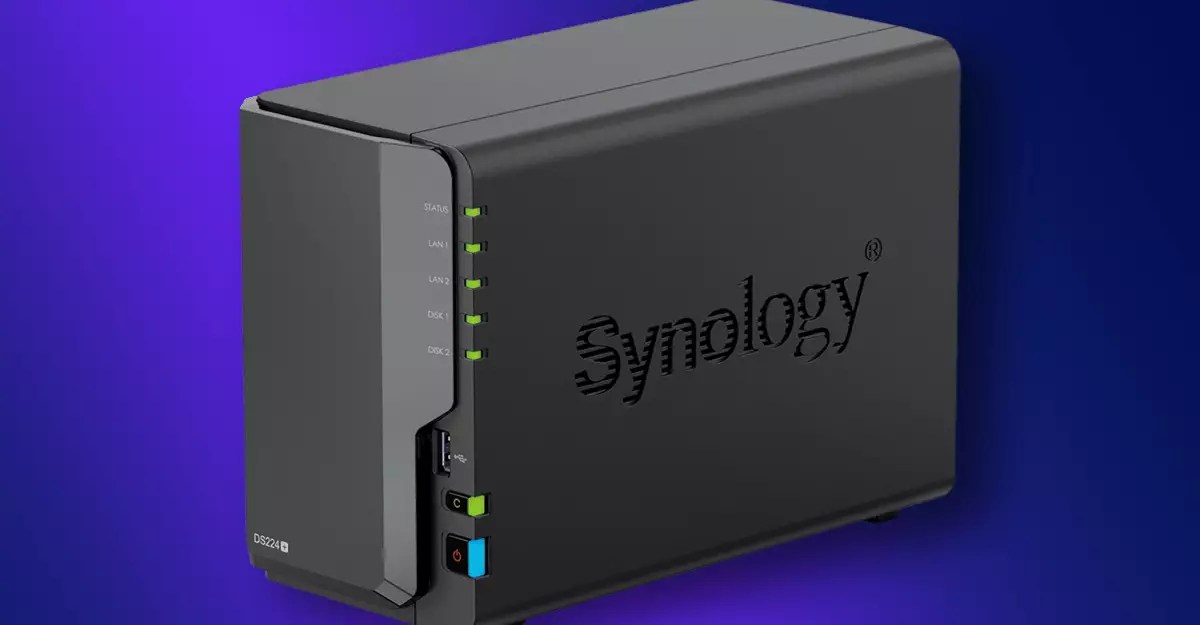In a notable pivot in the consumer tech space, Synology has announced that future models of its network-attached storage (NAS) systems will impose new restrictions on the use of third-party hard drives. While this move has sparked discussions about compatibility and user freedom, the company reassures existing users that their current systems will remain unaffected. This decision could redefine the landscape for both current and prospective Synology customers, raising critical questions about flexibility, choice, and the overarching implications of such restrictions.
Existing Systems: Security in the Familiar
First and foremost, the fact that current users of Synology NAS devices won’t feel the impact of these new regulations offers a temporary sense of security. Many tech enthusiasts have invested in Synology systems because of their user-friendly interface and robust features. By exempting devices released before 2025 from these restrictions, Synology acknowledges its loyal customer base, ensuring they can continue to utilize their existing third-party drives without a hitch. This aspect is crucial, as it tends to comfort those who fear they could be left with obsolete hardware or unworkable solutions.
However, the changes signify a broader corporate strategy that could affect the direction of NAS technology. For new buyers, the situation becomes more complex. The intention behind the restrictions, as discussed by Synology, is rooted in increased system reliability and performance. While minimizing compatibility issues may appeal to some users, the potential for significantly reduced options when it comes to hard drive sourcing raises concerns. Users may find the selection limited to Synology-branded drives and selectively certified alternatives, potentially inflating costs and limiting customization.
The Economic Implications of Restricted Freedom
In an age where consumers are increasingly driven by cost considerations, Synology’s new direction could alienate a segment of its customer base that prioritizes economical solutions. For DIY enthusiasts, the prospect of using a range of competitively priced third-party drives has often been one of the most compelling reasons to choose Synology’s NAS devices. While Synology argues that certified drives lead to lower rates of failure, one can’t ignore that a significant portion of its users are savvy enough to track their hardware performance without relying solely on brand labels.
The restriction not only narrows the options for casual consumers but may drive seasoned users to reconsider their hardware choices. More than ever, consumers are drawn to flexibility—the power to choose between different brands based on personal preferences, performance needs, and financial constraints. While Synology asserts that the new protocols are in the best interests of users, they could inadvertently throttle the innovation and price competition inherent in the marketplace.
A Balancing Act: Consumer Trust and Corporate Strategy
Amidst the shadow of such corporate decisions, one crucial aspect is trust. Synology appears to be attempting a balancing act; it wishes to ensure product safety and compatibility while also holding onto its user base. If the company can maintain transparency about the reasons behind these restrictions and visibly show that performance improves as a result, it might be able to soothe consumer discontent.
But there lies a critical question: does the promise of enhanced reliability justify a reduced choice? Many customers have historically embraced Synology because of its commitment to high-quality, customizable solutions. Their future decisions may hinge on how well the company can communicate the value of staying within the confines of system restrictions. Should Synology fall short in proving their point about compatibility and reliability, the backlash could ripple throughout the tech community.
Future Considerations: User Perspectives on Innovation
As we look forward, the future of Synology’s NAS products is undoubtedly tinged with uncertainty. Emerging trends in consumer technology are heavily influenced by user feedback and preferences. If Synology’s strategic decisions do not align with evolving consumer demands for flexibility, transparency, and cost-effectiveness, their reputation could see significant ramifications.
Moreover, the way competitors respond could also shape the conversation. If other brands maintain or advocate for a more open ecosystem, it could position them more favorably in a market sensitive to consumer autonomy. Ultimately, how Synology navigates this evolving terrain will be telling—not just for its business viability but also for the overall trajectory of network-attached storage technology.


Leave a Reply